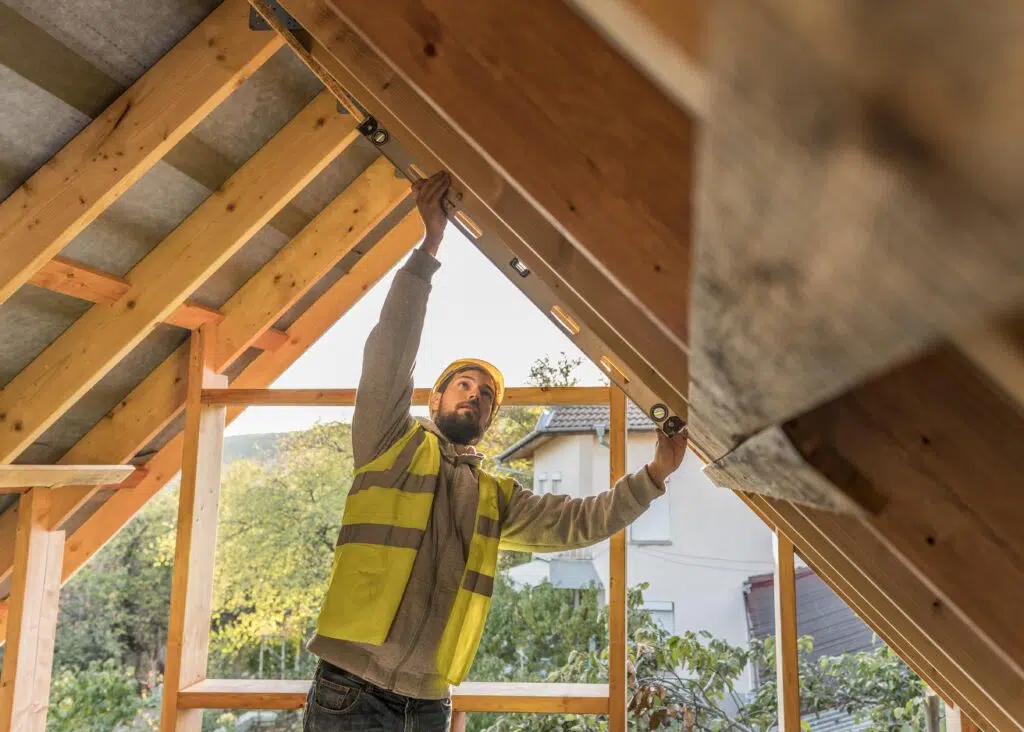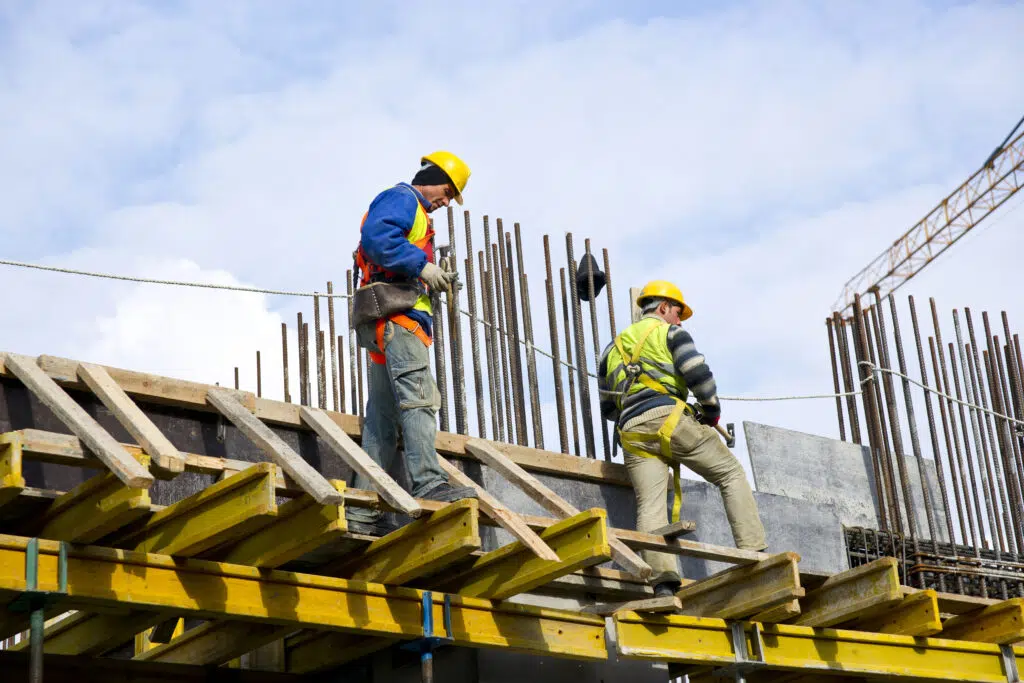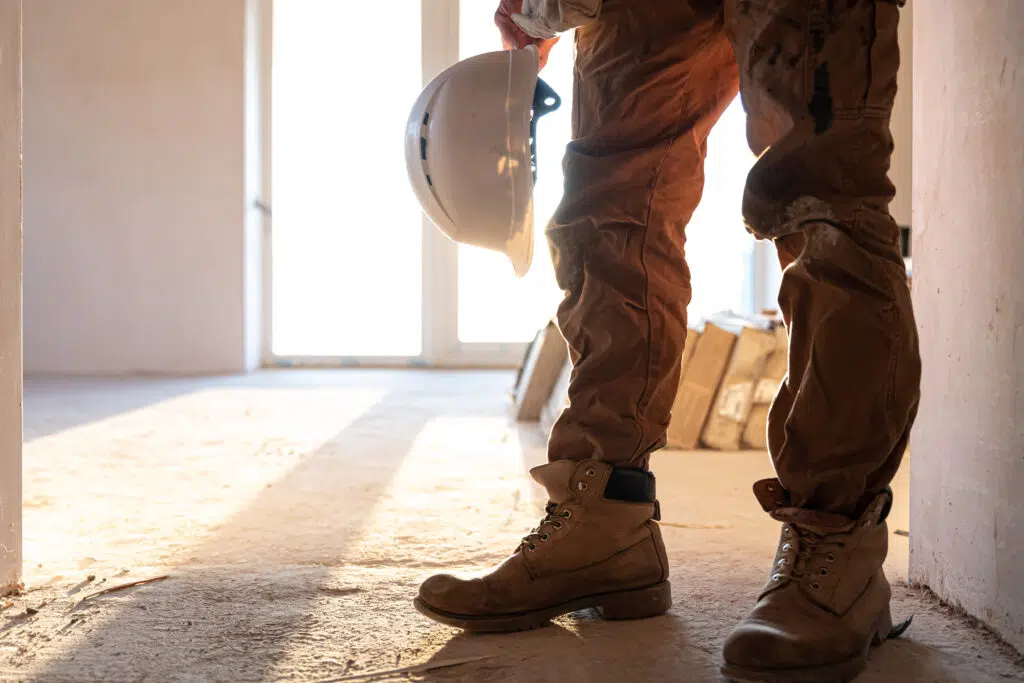How can you identify if you have a financially stable builder when more than 1753 construction companies went broke in the last financial year alone? There are clearly some things you can do to suss them out, but how do you really, really know?
That’s a good question! And one that you should definitely be asking yourself – ‘am I dealing with a financially stable builder?’
As part of our transparent approach to business, we’re going to talk about the importance of making sure you select a builder that’s not going to pull the rug from under you just when the rubber hits the road. Look, it’s no secret that we live in unusual times in the construction industry thanks to the impact of Covid-19.
Most builders experienced shortages of materials, and there were price increases that seemed to be all out of proportion. And then of course there was the persistent difficulty of finding tradespeople to do the work.
So although the sun is starting to shine through the clouds again, the perfect storm that hit the industry over the last 3 years was unprecedented in many ways. We’ve all seen that it caught up to some builders and they’ve fallen by the wayside.
But more importantly, although many builders may have apparently weathered the storm up until this point, it’s weakened them to the extent that there’s still a possibility that they’ll fall over sometime in the next couple of years.

So we acknowledge that there’s some level of suspicion around builders, and we respect that.
In fact, we would go so far as to say that every builder should be taking on the challenge of making sure they don’t fall victim to these pressures. In one sense it would be only normal for you as the homebuyer to be doing your due diligence on someone that you’re going to trust with the special journey of building your new home.
So let’s start with one thing that will put the whole thing into context.
In Australia, according to Ibis World there are about 430,000 construction companies. And the publicly available data tells us that about 2,800 went bust or decided to close the doors since the Covid storm really hit in 2021.
That’s about 0.6%. Over the space of about 2 ½ years.
Before we go any further, let that sink in, because it’s very important.
99.35% of construction companies out there weathered the storm.
Or here’s another way of looking at it. Let’s say there are 500 construction companies in your area, from small one-man bands through to the huge project builders. If we go by these ratios, only 3 to 4 went bust or closed their doors in that time.
But what happens is that these 3 or 4 hit the news. They get talked about, and the home buyers that were unfortunately tragically affected spoke out publicly, and so on and so on. The other 496 builders weren’t even really thought about, even though most of them would likely be classified as a financially stable builder.
We’re not trying to minimise the serious negative impact on homeowners of them losing their money. Not at all. But we think it’s important to get the problem in context, as accurate as possible.
So having got that cleared up, you’ll see why if you’re working with a builder currently, the odds of them going bust in the next 2 years is about 1 in 152. Based on the odds, it’s extremely unlikely that your builder is going to go under anytime soon.
Hopefully, this will help you relax a little bit. It will enable you to think clearly so you can make the right decision about whether you’re working with a financially stable builder.

The next step is to look out for 3 specific things, to give you confidence…
Step One.
The first one is a piece of evidence that comes from the government, the state government of NSW. It’s in the form of a special type of insurance – which you may already have heard about.
Quite a long time ago, the government put a mandatory insurance in place that every builder must take out. But it’s taken out on your behalf. Might seem a little odd, but here’s how it’s designed to work.
If a builder goes bankrupt, disappear or folds, then the homeowner can put in a claim on that insurance to either: get the home finished (if it’s halfway through the build for example), or get the home repaired if something goes horribly wrong during the statutory defects period after the home has been completed.
So the NSW government runs a fund called the HBCF. This stands for Home Building Compensation Fund. But the snag is that the builder – not the homebuyer, but the builder – must comply with strict criteria in order to be able to take out this insurance.
And we mean it when we say the criteria is strict. They obviously drill down into the financials of a business, including cashflow, assets, and other things. But they also take a broad look at how the builder will handle a variety of risks such as the things we mentioned earlier. Material delays, even the impact of bad weather on the construction schedule. You’re interested in whether you have a financially stable builder, but so is the government!
And there’s a reason they look at these things. They’re fair dinkum threats that can most definitely – and quickly – take a business down. And the government wants to make sure this doesn’t happen.
They have a very rigorous rating system which – if they do get approval – then provides builders with 2 things.
- A value ‘pool’ or bank if you like, that adds up to the value of the number of new homes that can be under construction at any one point in time.
- A maximum value per contract, per home.
This approval by the government is not just your ordinary little endorsement. It’s the outcome of both regular and extensive rigorous examination from a number of perspectives that culminate in an official sanction.
So step one in your research is to ask for tangible evidence from your builder that they qualify with the government for the warranty insurance on your home.
Step Two.
The second area of evidence that we now want to address comes from the professional world.
This one wouldn’t be new to most of you. There are many professionals out there offering a range of services to businesses. But the three we’re going to talk about today are accountants, bankers, and credit agencies.
The good thing about a professional is that they’re bound by a code of ethics to say and do the right thing. When they provide their opinion, it really does carry some weight. It’s an unbiased independent viewpoint that will provide you with additional assurance.
This part of your research involves asking your builder for written evidence. This is sometimes referred to as a letter of comfort. Ask for it from their banker, or their accountant. Or better still, both.
Finding a report from a credit agency can be a little trickier. But if you’re serious about a financially stable builder who’s rock solid, then persist with this step.
First up, simply ask your builder for a report from a credit agency. If they can’t offer this, then go searching online yourself and see what you can find. Be prepared to enter credit card details to pay a small fee for a good report. It can be well worth the money and let us tell you why.
See, a credit agency called ‘Creditor Watch’ (who really has nothing to do with the builder directly) are a powerful force in their own way. They really act like a public medium for the creditors of a builder to complain. They can report them when they do the wrong thing and don’t pay their bills on time.
It’s almost like an independent collective vote on whether a company is good at managing finances. A creditor can report to the agency when they don’t do the right thing. This negative activity is on file for all to see. Over time the agency builds a rating or score based on these reports.
Powerful stuff. I wonder how many builders, who no doubt want to be a financially stable builder, could offer assurances like this?

Step Three.
Now the third thing that most people tend to overlook – the owners of the business. Taking a closer look at the owners of the business can be extremely insightful.
- Who are they?
- What’s their background?
- How committed and engaged are they in the business?
- What other entities are they linked to?
- Is it a family business with generational wealth?
- Or a fly-by-nighter?
- Or a gigantic corporation riddled with corruption?
As you drill into these questions, any shaky foundations will often become evident. It will start to provide you with clear answers on whether they’re a financial stable builder that’s in it for the long haul.
What’s next for you from here?
Firstly, we hope you’ve found this information helpful and relevant to you!
So grab a pen and some paper and start making some notes on what you’re going to do. First cab off the rank might be a phone call to your builder. Ask for them to email you the warranty insurance evidence from the government. Step 2 might be to start googling into the history of the organisation to see what you can find out. You get the idea.




